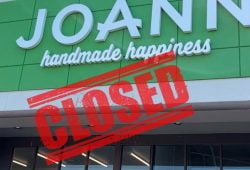The fast food industry is extremely popular worldwide. However, despite its growth, the sector faces significant challenges, such as rising input costs, stricter health regulations, and fierce competition. Recently, a report revealed that some fast food brands do not use “real eggs” in their breakfast offerings.
According to data from Statista, the global fast food market reached an estimated value of $990 billion in 2023 and is expected to surpass $1.2 trillion by 2027. This expansion is driven not only by the opening of new outlets but also by innovations in business models, including the implementation of digital technologies, online ordering, and home delivery services.
In emerging markets such as Latin America and Asia, fast food is growing at rates exceeding 8% annually, fueled by access to international chains and the proliferation of local businesses replicating the format. In Mexico, the sector contributes more than 3% of the GDP and generates hundreds of thousands of direct and indirect jobs.
What Does the Report Say?
According to a new report from the Food Safety and Inspection Service (FSIS) of the U.S. Department of Agriculture, several major fast food franchises in the country do not use “real whole eggs” in their breakfast items.
An investigation published on Tuesday by an American outlet identified the alleged offenders while also naming the major restaurants that do serve whole eggs. The findings may surprise you.
The report notes that food manufacturers often use pasteurized egg products because they are convenient and easier to handle and store, making the practice entirely legal.
For instance, Fox Business highlighted that although Starbucks claims its breakfast sandwich contains “whole eggs,” the media outlet pointed out that the “long list of additives” means the eggs technically cannot be classified as “100% real eggs.”
According to the report, the additives include “water, soybean oil, modified starch, whey solids, and citric acid.”
Meanwhile, the publication states that Dunkin’, the popular donut chain, also advertises the use of “real whole eggs” in various breakfast products. However, this classification is open to interpretation due to the additives in the eggs, such as water, modified corn starch, xanthan gum, and citric acid.
Another brand on the list is Subway, whose eggs reportedly contain additives like dextrose, guar gum, propylene glycol, and glycerin, as mentioned by Fox Business.
In response, the fast food giant has pledged to transition to using cage-free eggs but has not fully implemented this change, citing “current supply limitations.”
Similarly, Chick-fil-A is working toward serving 100% cage-free eggs but admits that its egg products currently consist of eggs, water, and other additives.
Fox Business also identified Burger King as the fifth fast food franchise that does not serve 100% whole eggs. The egg products in their breakfast items are allegedly a “liquid pasteurized egg mixture containing various additives.”
Who Uses Real Eggs?
However, the report also named five companies that do use 100% whole eggs for breakfast.
According to Fox Business, McDonald’s, Taco Bell, Panera, Wendy’s, and Whataburger serve the real product.
Read more:
Limited sales of this Disneyland seasonal product, but smart customers buy it this way
Most dangerous cruises of 2024 due to viral outbreaks, according to CDC
This brand of potato chips is withdrawn from the market due to a “risk of fatal allergies”









